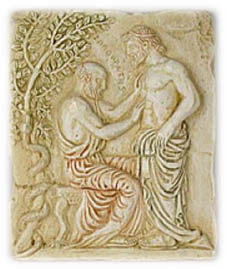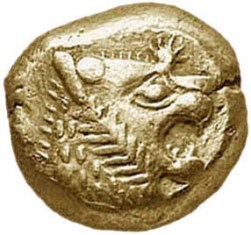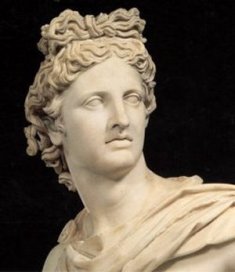LİDYA SARDES HOTEL TERMAL & SPA

Where does the long name of our hotel come from?
Our hotel is in such a position and place that it deserves mentioned with all of them.
LIDYA - Lydia, are people who believe in polytheistic religion and left a very rich heritage to world culture. They existed in the west of the Anatolia between Gediz and Menderes Rivers from the years of 1200 BC to 546 BC. They are originally Caucasian born but they must have been called as Lydian because they had membership of LI family. There are around 14 family stamps of LI family so far. IA refers to belong geographically in the Adige language ofCaucasian. Word of Li d ia means to belong to LI. Lydian used Etruscan alphabet. Etruscans; after a severe famine which lasted for 19 years in Lydia, most of the people seperated by courtesy of the king of that period and they migrated to northern Italy by building ships under the leadership of Tirhhen, the king's brother in Smyrna (Izmir), more precisely these people have been called as the Etruscans. In northern Italy today, There are Adige River, Adige region, Adige wines and Po plain and river with the words Adige Language has. (Pho - the fertile place between two valeys)
Lydian have invented the first coin called white gold, mixture of 40% gold and %60 silver and also called the ELECTRON in the period of King Gyges in 680 BC. Developments in trade caused them to build a rod called and known as Golden Road formerly and then King Road extending from Sardes to Central Anatolian Hittite, Hattusa and then going south to Mesopotamia and Ninova capital of Assyrian. Branches of the same road was extending from Sardes to Ephesus, to Pergamon (Bergama) and to Troy (Çanakkale).
SARDES; Sardis is an ancient city becoming the capital city of the State of Lydia.
- First money was invented here as coin.
- Starting point of Golden road, later King road is here.
- The place becoming a factory of gold obtained from alluvials of Paktalos river is here.
- Today, Roman Bath called Gymnasium is here.
- Anatolia's first and largest Synagogue (synagogue) is here established in the space provided next to the Gymnasium by the Emperor Lucius Vercus for the 10 000 Jewish community sent from Babylon in the period of Seleucids in 302 BC.
- It was a very important Thema (religious) center in that period.
SPA ; SALUS PER AQUAM – SANUS PER AQUAM – SALUT PER AQUA- SANTİTAS PER AQUAM : Bu sözlerin ortak anlamını suyla gelen sağlık, sudan gelen sağlık olarak değerlendirebiliriz.

- Temple of Artemis is here. It was built in 300 BC. Temple of Artemis takes place between easter nboundaries of mountain Tmolos and the Sardes Acropolis and it is also a temple fascinated by even the greatest man.
THERMAL; Roman Emperor Agrippa built his own design THERMAE in 25 BC and it was continued by the emperors came after him. So Baths were grown up and developed on large areas. THERMA over time named as thermal. In an enhanced Roman Bath, there were divisions as gym area, the standby site, sweating place, a steam bath. SPA ; SALUS PER AQUAM – SANUS PER AQUAM – SALUT PER AQUA- SANTİTAS PER AQUAM : We can say that common meaning of these words is health coming from water and coming with water.
In general, Spa is a kind of cure includes health, healing, fitness, relaxation, aesthetics and beauty in the form of healing and rejuvenating properties. To acquire mental and physical health. At first, it was named Spa for the baths used to improve physical strength and to provide relaxation of wounded and tired Roman soldires returning from the war.
NAMES USED IN OUR HOTEL SERVICE DEPARTMENTS
- 2ND LOWER FLOOR - Faustina Spa Caicos snack bar, gymnasium, Turkish Bath, Sauna caldarium, Palaesta Fitness, Thermal Hermos.
- 1ST LOWER FLOOR - Lydia Meeting Room, Meeting Room Sardis, Dionysus Disco, Paktalos Pool, Professor. Greenwalt Meeting room.
- GROUND FLOOR - Kybele Restaurant, Electrum Bar
- 3RD FLOOR - Gunnar Ekölöf restaurant, Olivos Restaurant.
- 4TH FLOOR - Tmolos Restaurant
FAUSTINA: There are two Faustina between 125/130-175 BC and 100-141 BC .They are mother and daughter. The mother was named as old and the daughter was named as young.
PUELLE FAUSTINA: She is the daughter of Consul Marcus Verus Annius and Rupilia Faustina and wife of ANTONIUS PIUS 4th of 5 good Roman Emperors . At the same time she is the aunt of Roman Emperor Marcus Aurelius. Faustina, following the death of her husband by the Emperor Antoninus Pius, was declared as AUGUSTA (the great, saint). Her bust found in excavations at Sardis was taken to the British Museum during the War of Independence and are kept there.
ANNIA FAUSTINA GALERIA: (Young Faustina)She is wife of Emperor Marcus Aurelius. After the death It is called Faustina for baths in Miletus.


CAICOS: It is the name of the Copper River in ancient era.
GYMNASIUM: It is yhe part of doing sports training in Roman b.
CALDARIUM: It is the hot part of hot water and hot pools in Roman baths
PALAESTRA: It is the part of meeting, pre-competition training and physical education during the Olympics or other sporting events.
HERMOS: It is the name of the Gediz River.
DIONYSUS: He is one of the twelve gods of Olympus, the son of Zeus and Semele and god of wine. He does not represent only drunk wine, but also he represents a social and beneficial effects. At the same time he is known as Bacchus (Bakhus) in both ancient Greek and Roman.
(There is a song of Bakhsıma wored- song in Adiges who are Caucasian origin, describing the formation of the world's first people. Bakhsema means Water of Life in Ubıh language also they are Caucasian descent peoples.
PAKTALOS: Ancient geographer Strabo of Anatolia from Amasya has said "Sardeis is a big city. It was the residence of King Lydian called Meionia by Homer. Paktolos River exits from Mount Tmolos. In ancient times, large quantities of gold dust is found here. It is said that the reason Kroisos and his fame and wealth is these gold dusts. But now there was not.. Paktalos and Hyllos called still Phriygios (Firigia) pours to Hermos".
PROF.CRAWFORD H. GREENWALT: He is a science professor introducing Sardis to the world with his numerous articles and books. He has continued his studies since 1959 and deserved to take a plaque by Ertugrul GUNAY who is Minister of Culture and Tourism because of his memorable services. Greenwalt Professor was sponsored by the foundation was created by the descendants of Jews who migrated to the U.S. in 1800.
KYBELE: Mother goddess Cybele symbolizes the fertility, productivity, vitality, nature ans-d soil. She is both the mother and virgin. She is the mother of all of the gods. In Firigia mythology, it is usually worshipped for her at the peak of the mountain. Self-Anatolian goddess Cybele, It is emerged from the excavations in Anatolia that figure of mother goddess is based on BC 6500 - 7000. The head of the goddess Cybele, is called today as qibla a place of worship in the Middle East. It is the side of Kaaba which is tended by Muslims for praying today.
ELECTRON Electrium: Electron was the name given to the first coins obtained from Pactolos river alluvials in the period of the Gyges adding to which 40% gold and 60% silver.
GUNNAR EKOLÖF: He is a Swedish famous poet. During his trips to Turkey in 1964, in the town of Sard built on the ruins of Sard, wrote a famous poem "DIVAN" FOR PRINCE EMGION. The ashes of the poet who died inMarch 16, 1968 were thrown to the Temple of Artemis near the river Sard in accordance with the testament of the deceased.
OLIVOS: It is the name used for many years, because of olives and olive oil in the region.
TMOLOS: It is the name of Bozdag in the during the period Lydian. TMOLOS is known as source of the religion of Dionysus and also shown as source of the religion of Dionysus a mountain of Lydia (Bozdag). He is husband of Omphale who was sold as a slavery because of an offence.